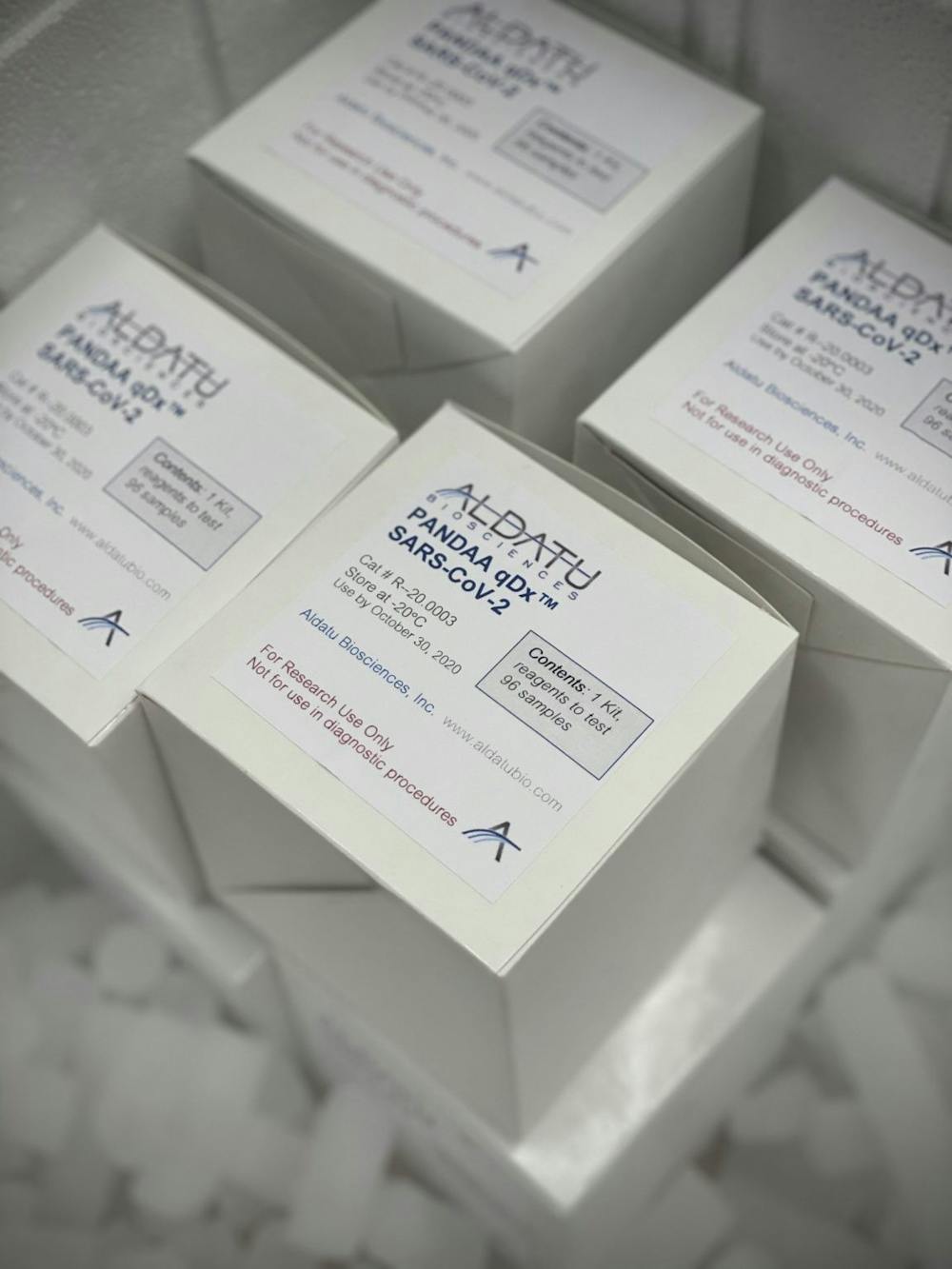University of Richmond alumnus David Raiser, ’06, and his team at Aldatu Biosciences have developed a testing kit for detecting COVID-19 that is being used by one of Boston’s major hospitals, according to an Aldatu press release on March 19.
The hospital began using the testing kit on March 17 called "PANDAA qDx™ SARS-CoV-2" (PANDAA), according to the release.
Before obtaining Raiser’s test, the hospital had no capacity for testing, according to the release. It now has the ability to provide 800 tests per week with reliable, same-day results. The kits are currently being used to test patients and on-site healthcare workers, according to the release.
“Accomplishing this feat on this truly remarkable 18-day timeline is all thanks to an incredible coming together of private sector and academic hospital partners, working efficiently and tirelessly to meet a desperate and critical need in a time of crisis,” Raiser, who is the CEO of Aldatu, said, according to UR Communications.
Aldatu will soon have the ability to create as many as 75,000 testing kits in total, according to CBS Boston.
Biology professor Rick Mayes said that in the absence of a vaccine, tests like Raiser’s were pivotal to the fight against COVID-19. Mayes estimated that a vaccine would not be available until this time next year, if not summer 2021.
“The next best thing is to figure out who in this country has this disease, so we can safely withdraw them from society for a couple of weeks,” Mayes said.
UR Medical Director Dr. Lynne Deane echoed this point. In an email to The Collegian, Deane wrote that testing was vital for healthcare providers working in public health.
She wrote that standard public health measures, such as good hand hygiene, social distancing and quarantining, would remain the most important ways to combat the spread of COVID-19, even as testing kits like Raiser’s emerged.
Although these public health measures are viable means of fighting COVID-19, stay-at-home orders have had and may continue to have a drastically negative impact on the global economy, Mayes said.
With a greater availability of testing kits, Mayes said the U.S. could change its response to the pandemic because it would know who had COVID-19 and therefore who to focus on.
"This test that [Raiser] developed," he said, "it could make the difference between having a recession and a depression.”
Enjoy what you're reading?
Signup for our newsletter
Raiser met with some of Mayes’s students in Boston while they were on a field trip to visit Acadia National Park in October 2018. He also spoke to health care studies students on campus in January 2019.
“He’s very illustrative of Richmond alumni who go on to do things that are really valuable and then connect back to our students who are trying to find what they want to do in life,” Mayes said.
Raiser studied biology and music while attending UR. He co-founded Aldatu in 2014 and earned a Ph.D. in genetics from Harvard Medical School in 2015.
Contact news writer Alan Clancy at alan.clancy@richmond.edu.
Support independent student media
You can make a tax-deductible donation by clicking the button below, which takes you to our secure PayPal account. The page is set up to receive contributions in whatever amount you designate. We look forward to using the money we raise to further our mission of providing honest and accurate information to students, faculty, staff, alumni and others in the general public.
Donate Now



